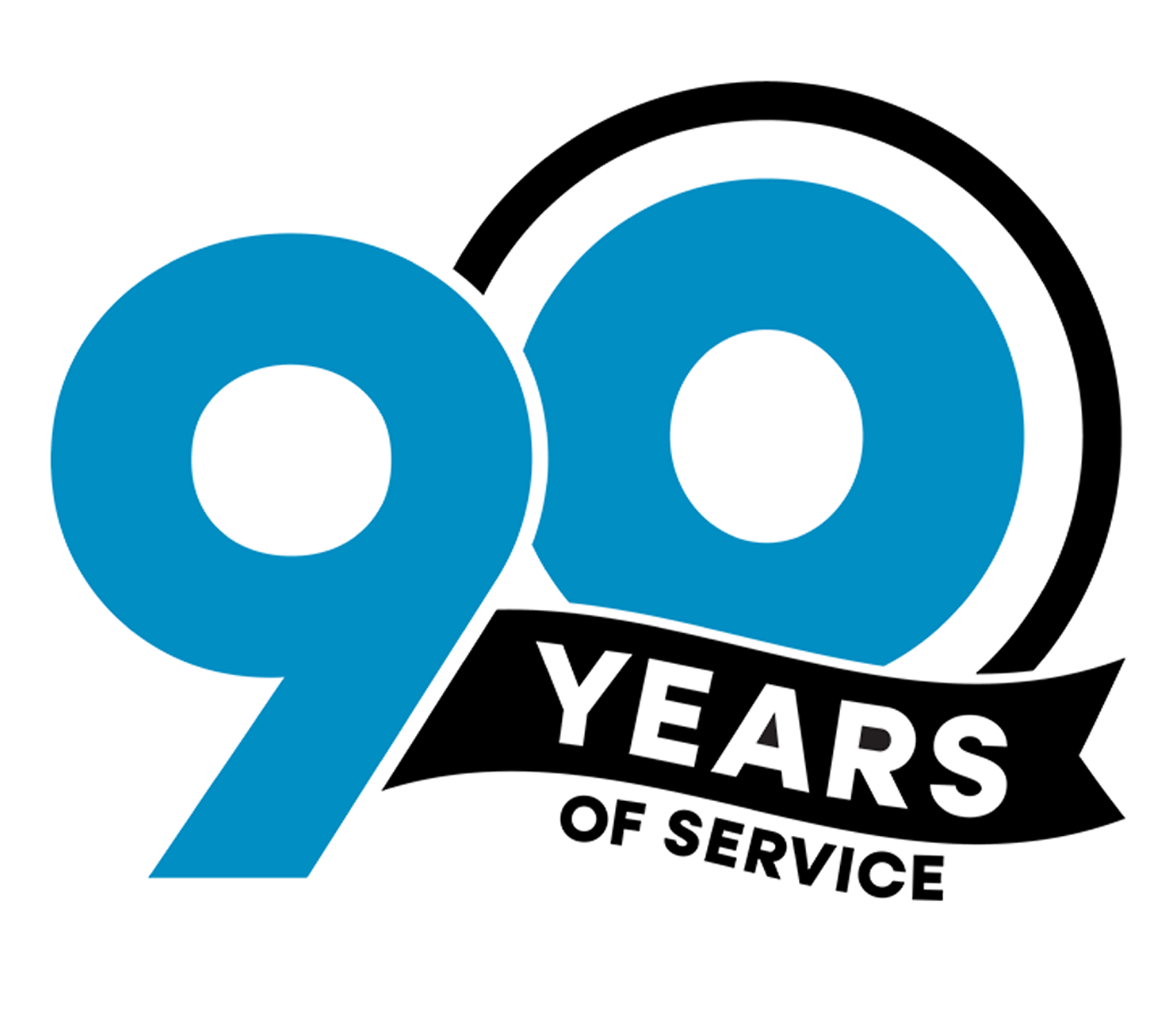Ready or not, tax season has arrived. Sadly, that means tax scams are also on the rise. Each year from January to April, thieves send out a flurry of messages hoping to catch people off guard. After all, we willingly part with our personal information (and money) each year in the name of civic duty. Unfortunately, artificial intelligence (AI) has made those text messages, emails, and phone calls a lot harder to detect.
What is ‘The Dirty Dozen’?
Each year, the Internal Revenue Service (IRS) compiles a list of tax scams known as the “Dirty Dozen“. The list is a reminder of common schemes that peak during tax season as fraudsters search for increasingly clever ways to steal money, personal information, data, and more. In anticipation of the 2025 list (which should be released in March), we’ll highlight a few of the classic scams that repeatedly make the list.
1. Phishing and Smishing Scams
Phishing scams are literally everywhere in today’s high-tech world. So, it’s no surprise that this common form of fraud is a thorn in the side of the IRS. Phishing (phone) and smishing (text) scams are unsolicited calls or messages from fraudsters disguised as IRS officials or agencies. They pressure victims into providing personal, financial, or employment information or they demand money to “fix an issue”. However, according to the IRS, they do not “leave pre-recorded, urgent, or threatening messages”. They will also “not use text messages to discuss personal tax issues” or “initiate contact with taxpayers by email to request personal or financial information”.
2. Employee Retention Credit
For the past few years, the IRS has been monitoring a new wave of tactics scammers employ that offer fake promises of refunds tied to the Employee Retention Credit (ERC). The ERC is a pandemic-era tax break for qualifying businesses, but most people are not eligible to claim the credit. The IRS notes that perpetrators aggressively advertise radio and internet promotions that rely on inaccurate eligibility details and misguided calculations. Some ads are sketchy attempts to draw in business. Others are designed with the sole purpose of collecting the taxpayer’s personal information. The scammers then exploit this information for identity theft purposes.
3. Verify Your Account Scams
In addition to IRS phishing and smishing scams, account verification scams involve emails, phone calls, letters, or text messages that appear to come from the IRS. They also attempt to lure their victims in with phony promises of refunds or empty threats of criminal charges. The messages almost always include a link or phone number for you to “verify your account” with your personal information. They are all scams. If you get a message claiming a refund or problem, remember this: the IRS initiates most contacts through regular mail and will never initiate contact with taxpayers via email, text, or social media regarding a bill or tax refund. A real IRS letter will have a notice number (CP) or letter number (LTR) at the top or bottom right-hand corner of the letter. If there is no such number, it is likely fraudulent and should be reported to the IRS.
4. Sign Up for an IRS Account
The IRS offers legitimate accounts that allow you to set up payment plans and view your tax history. An IRS account is a useful tool, but the IRS warns they will not solicit you to sign up. “Scammers are trying to convince people they need help setting up an account,” said IRS Commissioner Danny Werfel. “In reality, no help is needed. This is just a scam to obtain valuable and sensitive tax information that scammers will use to try stealing a refund.”
5. Fraudulent W-2 and Tax Form Social Media Scams
Social media is a great resource for recipes and craft ideas, but experts warn it’s not the best resource for tax advice. Case in point: the surge of social media scams aimed at encouraging people to falsely inflate their tax refunds with fake tax forms. Scam artists offer tax software designed to generate bogus forms with fake incomes, false withholdings, and phony records. They offer advice on how to generate forms that claim pets as dependents or invent fictional employees. They help people falsely qualify for Fuel Tax Credit Claims, the Earned Income Credit (EIC), or an Additional Child Tax Credit (ACTC). There have even been reports of scammers suggesting taxpayers file pandemic-era forms that are no longer valid. The problem is, the IRS is watching. Filing false claims or inflating tax records can almost certainly lead to penalty, and potentially, jail time.
6. Offer in Compromise Mills
An Offer in Compromise (OIC) is a deal you can make with the IRS if you owe taxes and can’t pay the full amount. It’s useful for people facing financial difficulties who need relief from their tax burden, but it’s also a haven for scam artists and unscrupulous companies who aggressively oversell the program to unqualified candidates. People commonly refer to these crooked companies (which collect hefty fees) as OIC mills. “People desperate for help can make a costly mistake if they clearly don’t qualify for the program,” says IRS Commissioner Danny Werfel. “Before using an aggressive promoter, we encourage people to review readily available IRS resources to help resolve a tax debt on their own without facing hefty fees.”
7. Fake Charity Scams
Fraudulent charities are an ongoing problem, but they are particularly aggressive during tax season. With this scheme, thieves set up fake charities designed to trick unsuspecting donors out of their money—and their sensitive information. Before donating, check the organization you are connecting to make sure it is a legitimate charity. To do so, use the special IRS Tax Exempt Organization Search Tool or visit a charity evaluation website such as give.org, charitynavigator.org, and charitywatch.org. Be on high alert for phishing attempts and don’t donate in response to an e-mail, text message, or phone call—even from organizations you recognize. Instead, contact the charities directly through their websites or publicly listed telephone numbers.
RELATED: Safe Charitable Giving: How to Avoid Donation Scams
8. Unscrupulous Tax Preparer and Ghost Preparer Scams
If you choose to use a tax professional for your 2024/2025 taxes, choose wisely. After all, you entrust them with your personal and financial information. In particular, the IRS recommends you watch out for “ghost preparers”. These are individuals unwilling to sign paperwork or use their IRS-issued Preparer Tax Identification Number (PTIN). With shady tax preparers, you are not only at risk for issues with your returns, but also at risk for identity theft and lost funds. To make sure you are not getting swindled, use a verified and trusted tax professional or legitimate tax software (like Turbo Tax).
RELATED: Common (and Costly) Tax Return Mistakes and How to Avoid Them
Common IRS Scam Red Flags
If you recently got an email or text about a tax refund, watch out. It’s a scam. IRS scams are increasingly sophisticated but have a few things in common. Here are a few red flags to watch out for:
- Urgency. Be suspicious of emails, calls, or texts that ask you to act immediately to avoid penalty or legal action. Scammers want you to act quickly without considering the consequences.
- Unsolicited calls, texts, or emails requesting personal information. Government agencies will never call, email, text, or message you on social media to ask for money or personal information. That said, if you call the IRS or another governmental agency, they may ask you to confirm your identity.
- A demand for money. The IRS will not call you to demand immediate payment. First, they will mail you a bill and an official letter. Be wary of monetary demands requesting specific payment methods (such as a prepaid debit card, gift card, or wire transfer).
- Poor grammar, hostile tone, or awkward sentence structure. Legitimate agencies aim for professionalism and take their time to vet communications. If the person you are communicating with uses vulgar, threatening, or aggressive language, hang up. Contact the IRS (or whatever agency the caller claimed to be from) directly and report the call.
Dealing with the IRS can be scary. But if you understand how the IRS communicates, you can quickly recognize when someone isn’t who they say they are. For added protection, file your taxes early. With taxes wrapped up long before the deadline, scammers will have little opportunity to impersonate or swindle you. If you work with a tax preparer, vet them properly and avoid anyone who claims they can get you a large refund before seeing your information. As always, if you think you have been scammed, let us know. We will walk you through the process of reporting the issue and help you protect your assets from future loss.
NOTE: If you need tax help or want to consult a professional about potential tax scams, you are in luck. Maps members are entitled to discounts on tax prep services from both H&R Block and Turbo Tax. As a member, you’ll save up to 20% on TurboTax federal products or up to $25 off H&R Block professional tax prep.


